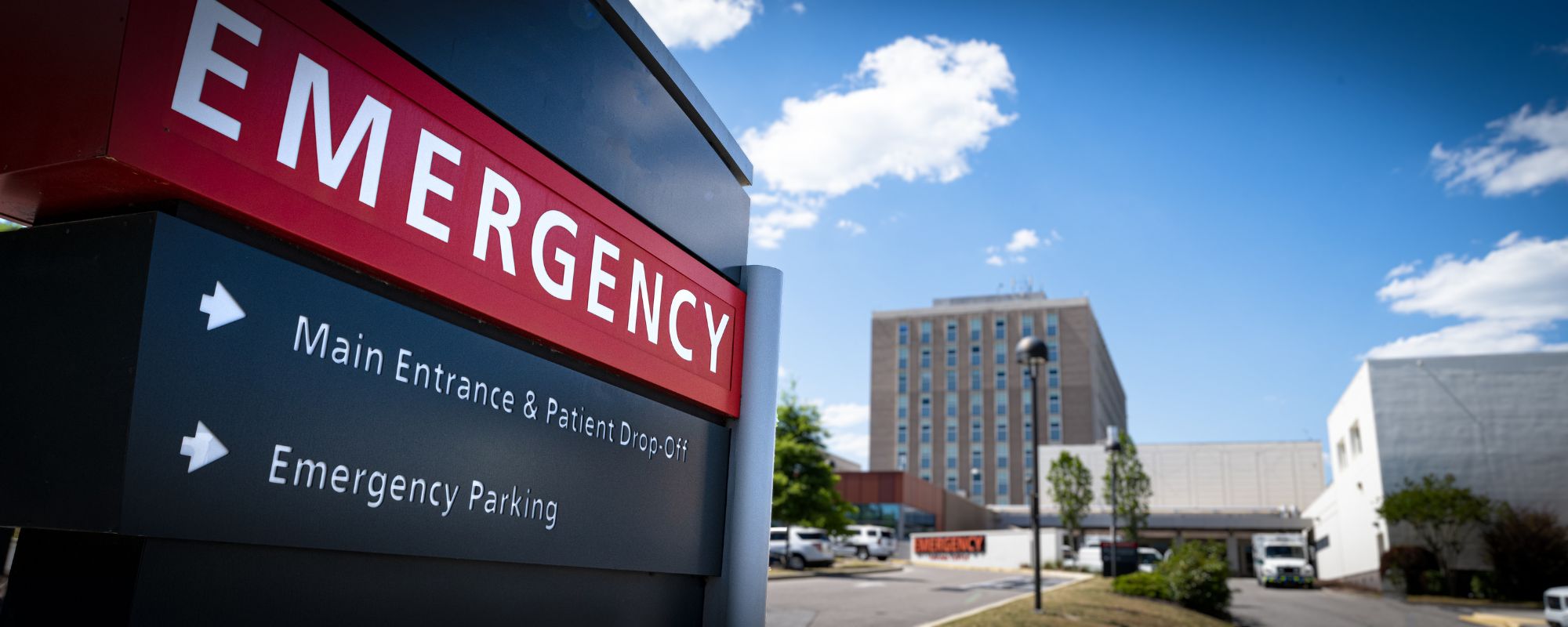Your liver is one of your body’s most unsung heroes. It’s your own internal filtration system, always multitasking to flush toxins and waste out of your system, digest what you eat, store glycogen energy reserves, and keep your blood healthy and flowing. It’s responsible for many of the essential functions that keep your body in good working order.
Its important roles and responsibilities notwithstanding, the liver is not an invincible organ. Sadly, it’s especially vulnerable and susceptible to the adverse, damaging effects of heavy alcohol consumption.
Two years ago, of the 96,610 liver disease deaths in the U.S., 44.5% — more than 43,000 fatalities — were on account of alcohol abuse, according to the National Institute on Alcohol Abuse and Alcoholism (NIAAA). The NIAAA adds that alcohol liver damage was also the reason for more than half of the nearly 57,000 cirrhosis deaths in 2023.
These numbers are staggering. But they don’t ignore one hopeful reality — alcoholism and alcoholic liver disease are treatable. If you’ve been drinking heavily, the first step toward recovery is a proper liver detox.
Does this mean detoxing on your own or committing to sobriety by entering a detox program? Both efforts can help your body respond by initiating a remarkable healing journey from the start. How can you tell if your liver is recovering, and what signs indicate that a liver detox from alcohol is working? Read on to find out more.
Why Is Drinking Bad for Your Liver?
The NIAAA points out that heavy drinking, whether it’s on one occasion or chronically, poses deleterious effects throughout the human body, particularly the liver.
Alcohol is a toxin, and so when you drink, it’s absorbed into your bloodstream and every part of your body and needs to be eliminated somehow. Yet only 10% of it is eliminated through your sweat, breath, or urine.
The remaining 90%? It’s metabolized in your liver — more specifically, an enzyme called alcohol dehydrogenase that’s produced by liver cells. It works to break down what you drink (primarily ethanol in alcohol) into ketones at about 0.015% per hour, and the more you drink, the more the organ needs to work overtime to keep up.
Liver Diseases From Alcohol
So, how does excessive drinking begin to harm your liver? Although your liver is a workhorse that can easily turn over new cells, some of them are killed off each time you take a drink. Consuming alcohol in moderate amounts (no more than one drink per day for women, two for men) won’t cause significant alcohol liver damage since it can regenerate itself. But chronic alcohol abuse overwhelms the liver and doesn’t give it sufficient time to heal.
Over time, this means progressive alcohol liver damage can begin to develop. “Heavy drinking takes a toll on the liver and can lead to a variety of problems,” says the NIAAA. This can result in a host of life-threatening liver problems, including:
Fatty liver disease: As its name suggests, fatty liver is a buildup of fat in the liver cells caused by problematic drinking and the earliest sign of alcohol-related liver disease. Fatty liver is preventable and can be completely cured, but only with alcohol abstinence.
Alcoholic hepatitis: Did you know that nearly one-third of alcohol abusers develop alcoholic hepatitis? The Mayo Clinic notes that it’s a type of liver inflammation and swelling that can develop with continued drinking and kill off liver cells. Symptoms can include jaundice (a yellowing of the skin and eyes) along with fever, nausea, and vomiting. Binge drinking can lead to the immediate onset of severe hepatitis.
Fibrosis: If you don’t stop drinking, inflammation can persist, resulting in collagen and other proteins building up between liver cells, creating scar tissue that forms in the liver. “Unlike healthy liver cells, scar tissue cannot function or repair itself. As fibrosis advances it can impact the liver’s ability to function, limit its ability to repair itself and restrict blood flow,” says the American Liver Foundation.
Cirrhosis: The most severe form of alcohol liver damage, cirrhosis occurs when fibrotic scarring becomes permanent and replaces healthy liver tissue. Untreated cirrhosis, which happens after years of alcohol addiction, can eventually lead to complete liver failure. The Cleveland Clinic cites two types of cirrhosis: compensated cirrhosis (stage 3 liver disease), where your body is still able to adjust to its reduced liver function, and decompensated cirrhosis (stage 4), when symptoms begin to be too noticeable to ignore.
Liver cancer: Studies show that even one alcoholic drink per day poses a 1.1-time increase in your risk of developing liver cancer — two times as likely in heavy drinkers. There are many ways liver cancer can manifest, but one reason, according to the National Cancer Institute, is when the liver converts ethanol to acetaldehyde, which is a likely carcinogen that can pose irreparable damage to DNA and proteins.
Looking for quality treatment for substance abuse and mental health that’s also affordable? Aliya Health Group's treatment facilities accept most major insurance providers. Get a free insurance benefits check now!
Check Your CoverageWhat Else Does Alcohol Do to the Body?
Your liver does most of the heavy lifting of processing the alcohol you drink, bearing much of the brunt of its impact. But chronic drinking can harm every other major organ in your body:
- Brain: Alcohol can create neurological damage. Not only is it one of the primary sources of alcohol dependency, but becoming regularly intoxicated disrupts your cerebral communication pathways, which can severely alter your mood, behavior, cognitive skills, coordination and memory.
- Heart: Your cardiovascular system is sensitive to the effects of heavy drinking. Over time, alcohol misuse raises your blood pressure and can lead to irregular heartbeat and arrhythmia, cardiomyopathy (the stretching and drooping of heart muscle), and increased stroke risk.
- Pancreas: Excessive alcohol use can also increase your risk of contracting pancreatitis, a concerning inflammation of the pancreas that can interfere with its ability to produce the various enzymes and hormones necessary for digestion, notes the NIAAA.
- Cancer: It goes without saying that in addition to your risk of developing liver cancer, alcoholism increases your risk of head, neck, esophageal, breast, and colorectal cancers.
In addition, alcohol abuse can also hinder your mental health. Studies show that anxiety and mood disorders commonly co-occur with alcohol use disorder, with depressive disorders the most common among people who drink heavily.
What Is a Liver Detox?
A liver detox generally refers to any health-minded effort aimed at minimizing the burden placed on your liver from drinking, giving it a chance to recover from alcohol toxin overload. Many people turn to taking supplements, making dietary changes or trying out herbal remedies to cleanse the liver. Others may try fasting or juicing in the hope of improving liver function.
While these methods are popular and can help improve your overall health, the science behind them is mixed. There are no negatives to eating healthier and cutting out fatty, sugary, or processed foods, but there’s little to no evidence that they work to counteract damage done to the liver from alcohol.
Some experts contend that many conventional liver detoxes can actually be harmful, rather than helpful, to the liver due to certain ingredients in over-the-counter supplements, juice cleanses, and detox teas.
The most effective liver detox with the best liver detox benefits is straightforward — abstain from alcohol completely or cut back on drinking to allow your entire body, not just your liver, to heal. However, it’s not advisable to quit alcohol cold turkey, especially after a long period of heavy, binge or chronic drinking since one’s liver detox symptoms can become unmanageable.
A medically supervised detox as part of a treatment program helps you clean your system of those toxins while setting you up to live clean and sober.
Myths and Facts About Liver Detox
While there’s a great deal of skepticism, yet also certainty, about the most effective way to go about a liver detox, there’s a great deal of misconceptions and misinformation about how to detox the liver properly. Here’s what medical science actually tells us, according to Johns Hopkins Medicine hepatologists:
Myth #1: Your liver needs special cleanses after overindulgence.
Fact: Despite marketing claims, medical experts don’t recommend these unregulated supplements since they lack proper clinical testing, plus many of them are not FDA approved. For example, milk thistle and turmeric are touted as go-to liver detox ingredients, with claims to decrease inflammation and fortify against damage; however, neither has sufficient clinical trial evidence to merit endorsement as a solution. Ultimately, your liver — without the use of alcohol — naturally recovers without the need for special products.
Myth #2: Liver disease is unavoidable.
Fact: Self-defeating beliefs that you can’t protect yourself against liver disease are not only patently false, but they can also lead many people to keep drinking without attempts to curb their alcohol use. The truth is that you do have control over developing liver cancer through smarter lifestyle choices, like:
- Drinking alcohol in moderation — or none at all
- Maintaining a healthy weight through diet and exercise
- Avoiding risky behaviors (like illicit substance abuse or excessive alcohol use)
- Getting screened for liver cancer, especially if you have a family history of it
Myth #3: Liver cleanses can repair existing liver damage.
Fact: Supplements may do an adequate job of helping keep an already-healthy liver cleansed, but there is no commercial product that can reverse existing alcohol liver damage. The best defense against healing your liver is by curbing all alcohol consumption and allowing your liver’s regenerative abilities to go to work when the source of damage is removed.
Get confidential help from our addiction and mental health treatment facilities located across the United States. Call to join one of our quality programs today!
Speak With Our Admissions TeamSigns Your Liver Detox Is Working
Because your liver has that remarkable reparative capability, it begins its own liver detox once you stop drinking. But how do you know it’s working? Observe some of the ways you feel and liver detox benefits, signs that your liver is getting back in shape:
- Improved energy levels: The body can become fatigued and feel taxed from excessive drinking — signs of a stressed liver. When it starts to heal itself, notice how energized you feel throughout the day, also a sign of better sobriety.
- Better sleep: Heavy alcohol use is linked to insomnia; in fact, 90% of people in a Sleep Foundation survey revealed having sleep problems following regular alcohol consumption in the evening. During a liver detox, notice how deeper, more restful nights return as your circadian rhythms and sleep patterns stabilize.
- Clearer complexion: Alcohol abuse is also tied closely to skin conditions like rosacea, psoriasis, and dark under-eye circles. Your skin may look healthier, and these conditions may begin to subside after quitting drinking. And in the case of alcoholic liver disease, jaundice may improve, one of many liver detox symptoms.
- Better digestion: A healthy liver produces bile, important in aiding digestion, which can become compromised with too much alcohol use. A liver detox may also see you experience less bloating, gas, or discomfort after eating.
- Mental clarity: Though your liver and brain aren’t always connected, as your liver processes toxins more effectively, notice how any alcohol-induced brain fog may begin to lift, leaving you with sharper focus, ability to concentrate, and memory.
Remember, it’s important to note that these changes don’t happen overnight. Everyone’s liver detox timeline can vary from person to person. By quitting drinking and giving a liver detox enough time, your body can begin to heal.
Why Do People Struggle to Quit Drinking?
Alcohol use disorder affects about 28.9 million people in the United States, according to the NIAAA — a disease that’s hard to break even for people who actively want to quit drinking but cannot. Alcohol is physically and psychologically addictive, just one reason why it can seem impossible to cut back or stop entirely.
Addiction begins in the brain, where it begins to adapt to the presence of alcohol, rewiring reward pathways and blocking out negative feelings. “These feelings can motivate some people to drink alcohol again and again, despite possible risks to their health and well-being,” notes the NIAAA. Over time, your brain and body become tolerant, then dependent on alcohol, eventually coming to rely on it to function and get through the day. (Research shows that 19.5% of alcoholics are high functioning.)
Many people use alcohol as a self-medicator to drink away their stress, trauma or other unchecked mental health issues. Drinking becomes an excuse after a bad day at work. Without healthier coping tools in place, stopping can feel like you’re losing the only thing that gets you through the day.
You might face social pressure to drink. If alcohol is embedded in your interactions with friends, family or relationships, even the idea of quitting can feel isolating. There’s also the trepidation to quit in fear of alcohol withdrawal symptoms — intimidating enough to keep drinking just to avoid them.
Getting Help for Alcohol Use Disorder
Proper, professional help is the best, clearest and most efficient path to quitting alcohol if your drinking has become problematic — and if vital organs like your liver have been affected.
Alcohol liver damage can be helped with the right support. Treatment at a rehab facility begins with a period of medical liver detox, enabling you to safely, comfortably manage withdrawal symptoms, monitored and supported by a caring clinical staff.
Once detox is complete, the therapeutic track begins. Psychotherapy helps you talk through your issues, explaining the details and nuances of your relationship with drinking. It’s in therapy (which can be either on an inpatient or outpatient basis) that you can begin to identify the underlying reasons why you drink, helping you identify triggers and reframe the negative thought patterns that might be behind your reasons for drinking. By learning and adopting a more optimistic mental narrative and outlook, it influences more positive, sober behaviors.
Treatment also offers other options, like holistic therapies that take an alternative approach to healing. Yoga, meditation, expressive arts or nutritional counseling all work in tandem to heal the mind, body and spirit.
Improving your health — physically, mentally and emotionally — is a goal that can’t be overlooked if alcohol abuse has become a troublesome part of your life. If you have questions about treatment, our team is on hand 24/7, 365 days a year to connect with you. Email or call us about alcohol use disorder treatment. One phone call can change your life.
- https://my.clevelandclinic.org/health/articles/21481-liver
- https://www.niaaa.nih.gov/alcohols-effects-health/alcohol-topics-z/alcohol-facts-and-statistics/alcohol-and-human-body
- https://www.mountsinai.org/health-library/diseases-conditions/alcoholic-liver-disease#:~:text=Alcoholic%20liver%20disease%20is%20treatable,or%20return%20to%20normal%20function.
- https://www.utoledo.edu/studentaffairs/counseling/selfhelp/substanceuse/metabolizingalcohol.html
- https://www.mayoclinic.org/diseases-conditions/liver-problems/symptoms-causes/syc-20374502#:~:text=Liver%20disease%20can%20be%20passed,viruses%2C%20alcohol%20use%20and%20obesity.
- https://www.niaaa.nih.gov/alcohols-effects-health/alcohols-effects-body#:~:text=Heavy%20drinking%20takes%20a%20toll,Fibrosis
- https://liverfoundation.org/about-your-liver/how-liver-diseases-progress/fibrosis-scarring/
- https://my.clevelandclinic.org/health/diseases/15572-cirrhosis-of-the-liver
- https://pubmed.ncbi.nlm.nih.gov/26134046/
- https://www.cancer.gov/about-cancer/causes-prevention/risk/alcohol/alcohol-fact-sheet
- https://pmc.ncbi.nlm.nih.gov/articles/PMC6799954/
- https://www.hopkinsmedicine.org/health/wellness-and-prevention/detoxing-your-liver-fact-versus-fiction
- https://www.sleepfoundation.org/nutrition/alcohol-and-sleep
- https://www.niaaa.nih.gov/publications/cycle-alcohol-addiction
- https://my.clevelandclinic.org/health/diseases/alcohol-withdrawal








